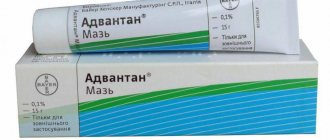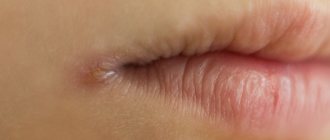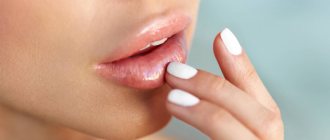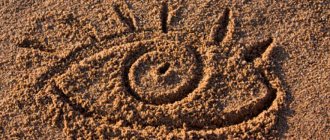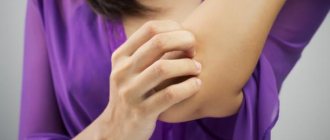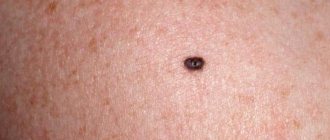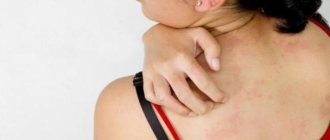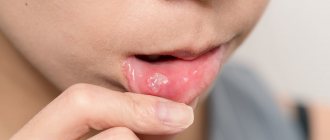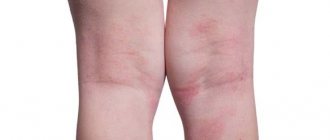Etiology of the phenomenon
Itching usually occurs as a result of some pathological condition of the body, that is, it is, in fact, a symptom.
It happens, of course, that your hands and feet itch from exposure to the ambient temperature on the skin, in severe frost or, conversely, in the summer heat. But in most cases, itching, burning and the presence of red spots on the skin are a manifestation of the following diseases:
- An allergic reaction occurs due to contact with the skin on the hands of an allergic pathogen. In other words, the human immune system reacts to a substance included in the composition, for example, dishwashing detergent, washing powder, soap and other chemical compounds used in everyday life. An allergen can also be paint or plant sap, anything a person touches or inhales. In this case, the allergen can be determined empirically by paying attention to which substances came into contact with the person before the onset of symptoms.
- A complication of an allergic reaction is eczema. This unpleasant condition is not transmitted by touching or in any other way, but causes severe discomfort to a person with constant burning and itching of the skin on the palms and wrists.
- If the spots that appear on the hands itch especially intensely at night and are localized mainly on the back of the hand, then this is most likely scabies. The causative agent of the pathology is the scabies mite, a small parasite that settles in the upper layer of the epidermis and in the folds of the skin. This type of disease is transmitted through tactile contact and requires long-term professional treatment.
- Disruption of the nervous system. In this case, the hands itch during moments of severe nervous tension, as a result of lack of sleep or a sharp jump in blood pressure. Usually, in this state, a person exhibits other signs of disruption of the autonomic and nervous systems - stool disturbances, tachycardia occurs, and loss of appetite.
Why do your palms itch?
Researchers identify five common causes for Itchy Palms.
Dry and irritated skin
This is especially true during the winter season, when indoor humidity drops. The skin rapidly loses moisture, and the thin epidermis on the palms suffers first of all. This is how irritation, peeling and itching appear.
Dry skin also occurs for other reasons - for example, due to decreased activity of the thyroid gland (hypothyroidism).
Or maybe you just used the wrong soap or washing powder? Or did you rub your palms too thoroughly while washing your hands? The thin film of sebum on the surface of the epidermis could be destroyed, causing irritation and itching.
Allergic reaction
The allergy could be caused by an object or plant you touched. Or, for example, a hand lotion containing an irritant substance to which your skin reacted. Another option: the reaction was caused by the use of some product or medicine.
An important nuance: allergic itching does not always begin immediately. Sometimes several hours pass between exposure to a stimulus and the realization “oh, my palms are itching.”
Atopic dermatitis
Aka eczema. By the way, this is a fairly common condition: in the United States, about 10% of people suffer from atopic dermatitis affecting the hands.
This non-contagious disease can cause redness, colored (pink, grayish, brownish) spots, blisters and itching on the palms.
People most often affected by eczema Itchy palms: 6 causes, treatment, and prevention, whose hands are regularly exposed to moisture and harsh chemicals:
- hairdressers;
- cleaners;
- catering industry employees;
- mechanics;
- workers in medical laboratories and hospitals.
Eczema can disappear for several months, then worsen again, sometimes for no apparent reason.
Hyperglycemia or diabetes
Elevated blood sugar levels can also make itself felt by itchy palms.
Nerve damage
Diabetes can damage the nerve fibers in the palms. Or, popular among those who spend a lot of time at the computer with a mouse in their hands, a disease called carpal tunnel syndrome (also known as carpal tunnel syndrome).
Such disorders often cause a feeling of discomfort, numbness in the hands and at the same time itching in the palms.
What else could be the reason
When your hands itch, photographs cannot convey the complexity of the situation, because they do not show how the person is suffering. In addition to the above, the following conditions may cause itching:
- If your hands itch from the hand to the elbow, and peeling of the skin appears, then this is most likely psoriasis, a disease caused by abnormally dividing epidermal cells. The causes of the pathology are still unknown. Treatment is long-term – it lasts throughout a person’s life. It is symptomatic in nature, that is, therapy is aimed at relieving itching on the skin and temporarily stopping skin exfoliation. Since the cause remains unknown, an effective treatment that can eliminate the problem forever has not yet been found.
- Mycosis of the hands. In this case, the hands itch due to the spread of a fungal infection. It usually starts with nail fungus and progresses to the skin on the fingers, palms and wrists.
- Sometimes the hands itch due to the release of large amounts of bile acid into the blood. This occurs due to liver dysfunction resulting from cirrhosis or hepatitis. Usually the problem is not limited to the skin on the extremities. Itching and burning appears throughout the patient's body.
- In diabetes mellitus, redness and itching affects not only the wrists, but also the skin on the elbows. This suggests that the chosen medicine to normalize blood glucose is not entirely suitable for the patient. It is necessary to select another remedy or change the dosage of the old drug.
How to relieve itchy palms at home
Until you get to the doctor, you can try to reduce the discomfort on your own.
Apply cold compresses
For example, apply gauze pads soaked in cool water to your palms for 5–10 minutes. Or hold on to a bag of frozen vegetables wrapped in thin cloth.
Stay hydrated
Try to drink at least 2.5 liters of fluid per day. We remind you: tea, juices, liquid soups, juicy fruits also count.
Monitor indoor humidity
Optimal humidity level Indirect health effects of relative humidity in indoor environments. - 40–60%.
Moisturize your hands regularly
Moisturizing creams and lotions will help with this. Naturally, those to which you are not allergic. If in doubt, ask your physician or dermatologist to help you choose a hypoallergenic product.
Diseases that cause redness of the hands
There are a number of diseases in which redness of the wrists and palms is one of the symptoms. But this symptom usually appears in combination with other characteristic symptoms that make it possible to diagnose the disease. This may be gout, dysfunction of the thyroid gland or pituitary gland, leukemia, lymphogranulomatosis and other systemic diseases.
Diagnostic measures
When your hands itch, a dermatologist can help identify the cause. First of all, he conducts an external inspection of the affected areas. Then the patient is sent for a series of tests to help determine the type of pathology. This is a laboratory test of blood and skin scrapings.
An important aspect is the collection of anamnesis, during which the doctor finds out where the patient’s hands have been recently, what he eats and how he feels in general. Self-diagnosis, especially prescribing treatment, can lead to a worsening of the situation.
How is itchy hands diagnosed?
In order to identify why your hands itch and peel, you should consult a doctor who will make a differential diagnosis between several pathologies. To diagnose the cause of itchy hands, the following methods are used:
- Taking an anamnesis, during which it is determined whether there was contact with allergens or the causative agent of the disease.
- Physical examination, including visual inspection and palpation of formations.
- A set of instrumental and laboratory studies.
In order to identify scabies mites, microscopy is used. Biological material containing the insect is sent to the laboratory for its identification. If a tick is not detected, but during a biochemical blood test an increased level of glucose is noticed, diabetes mellitus is suspected, since the localization of itching in these two pathologies often coincides: the hand itches in the spaces between the fingers.
First aid
If the reason why your hands itch is obvious, then you can try to cope with the itching and burning on your own, before the patient sees a doctor. After a nettle burn, you need to rinse the skin first with hot water, then with cold water - this narrows the pores on the skin and relieves the burning sensation. Fat cream or regular butter is used for the same purpose. It prevents the caustic juice from being absorbed into the skin.
When itching appears immediately after contact with a detergent, first of all, you need to stop using it and give the patient Diazolin or another anti-allergy drug. If your hands itch in the cold, you need to lubricate them with cream. A cosmetologist will help you choose such a product.
Drug treatment
Drug treatment for itching, burning and redness on the skin of the wrists and palms depends on the cause of their occurrence, that is, it is aimed not only at relieving symptoms, but also at eliminating the pathology itself, if possible. In the case of diabetes and psoriasis, this is precisely impossible, since the diseases are considered incurable. In other cases, treatment is prescribed individually in each individual case. Self-medication, especially of systemic diseases, is extremely dangerous and ineffective.
To relieve symptoms, Fenistil, Sinaflan, Lorinden or Fluorocort are most often used. The procedure for using these products is indicated by the attending physician or is described in the attached instructions for use.
For internal use, preparations with calcium and iodine are prescribed. This strengthens the human endocrine system. In order to improve the immune defense of a person and his skin, the patient is prescribed a course of taking vitamins A, D and E.
What to do if your palms itch
If this is a one-time event or itching occurs rarely (once a month, once a year), you don’t have to worry. But if your palms itch with enviable consistency, it’s worth understanding the reasons.
Contact your physician or dermatologist. The doctor will conduct an examination, ask you about your lifestyle, diet, check whether you are taking certain medications, and possibly send you for a blood test or skin scraping. Treatment is prescribed depending on the test results.
If an allergy is established, you will be asked to identify the allergen product and reduce contact with it to a minimum. Your doctor may also recommend taking antihistamines.
For eczema, you will be prescribed medicated lotions or steroid ointments.
If the cause of itching is hyperglycemia, diabetes, carpal tunnel syndrome, you will first need to cure or correct the original disease. After this, your hands will stop itching on their own.
General recommendations
In general, to restore elasticity, normal skin moisture, eliminate itching and burning, there are a number of general recommendations that must be followed along with conservative treatment:
- It is necessary to reduce the likelihood of allergies by excluding exotic fruits and nuts from the diet.
- During treatment you should not drink alcoholic beverages.
- Hands should be washed several times a day, especially if a person is employed in hazardous work or has constant contact with chemicals.
- During the treatment period, you need to wear clothes made from natural fabrics - cotton, linen, silk or wool. Although the latter can also cause redness on the skin due to its fleecy texture.
- During the treatment of skin diseases, it is advisable to quarantine the patient in order to reduce the likelihood of transmitting the infection to other people through tactile contact or through shared objects.
- During treatment, you need to change your regular cosmetic cream to products containing vitamins and natural elements.
Treatment with folk remedies
As humans evolved, we constantly encountered skin diseases, including those on the arms and hands. As a result, various treatments using medicinal plants have been developed. But before starting such therapy, you should consult with your doctor to protect yourself from possible allergic reactions and side effects.
- Nettle can cause not only burns, it has a powerful healing effect. To use the plant for therapeutic purposes, you need to brew dry nettle leaf instead of tea in a ratio of 1 tbsp. spoon for 200 g of water. But you need to take this remedy for no more than 2 weeks in a row. It should be alternated with regular tea or other decoction.
- Tincture of dill seeds strengthens the skin well. It’s easy to prepare – 2 tbsp. spoons of grains need 250 g of boiling water. Leave for at least 2 hours, consume after straining 30 minutes before meals.
- Pain, itching and burning are relieved with mint infusion. There is no need to drink it; you can soak your hands in it or make a compress with the product. An infusion is prepared in a ratio of 2 tbsp. spoons of dry leaf per 500 g of boiling water, leave for at least 1 hour.
- Burdock decoction. The crushed root of the plant is used to prepare it. It is brewed in a ratio of 1 tbsp. spoon for 500 g of boiling water. The product is infused for 15-20 minutes. You need to take the product after straining, 30 minutes before meals, 2 times a day.
Why your hands itch: provoking factors
This symptom may appear due to exposure to aggressive environmental conditions and temperature changes. Itchy hands are also characteristic of various diseases of an allergic nature, endocrine disorders, and infections. Consider the possible reasons in more detail:
Changes in weather conditions
Weather-dependent people may notice that unpleasant symptoms arise when the weather changes. Most often - headache, general malaise, increased blood pressure. But weather sensitivity can also manifest itself in the form of skin rashes, in which the skin on the hands itches.
Lack of vitamins and microelements
Hypovitaminosis is rare in people from developed countries. However, excessive consumption of “fast” food, which is poor in beneficial vitamins, polyunsaturated fatty acids and protein, can affect human health in the form of mild hypovitaminosis, the symptoms of which depend on the missing vitamin. When the daily intake of B vitamins decreases, dermatitis occurs, the skin becomes dry and peels in one place or throughout the body. Fat-soluble vitamin A is also an essential element in the human body. It accelerates regenerative processes in the epidermis and helps cope with inflammatory skin diseases. People with acne are often found to be deficient in vitamin A.
Vitamin E is recognized as a natural antioxidant that protects the skin from the aggressive action of free radicals. When its reserves in the liver are depleted, human body cells become vulnerable to premature aging and degradation.
Allergy
Itching on the hands is a variant of the manifestation of a hypersensitivity reaction to allergens that enter the human body in various ways:
- oral – eating food to which you are allergic,
- contact - through the skin,
- parenteral - by injection or through the mucous membranes of the eyes and nasal cavity.
Read also: Itching in the perineum: symptoms, causes of itching in the groin
Dermatitis, eczema
When the skin on the hands peels and itches, inflammatory dermatological diseases are suspected, which include eczema and dermatitis. Idiopathic eczema affects the hands and forearms, as well as the legs and feet. Rashes, presented in the form of microvesicles, often open to form areas of weeping, and then dry out to form a crust. Contact dermatitis occurs due to delayed-type hypersensitivity. It is characterized by redness, itching at the site of contact with the allergen, and swelling.
Psoriasis
This is a chronic dermatological disease of a relapsing course, the external signs of which are psoriatic plaques. The favorite localization of psoriasis is the skin of the extensor surfaces of the joints of the limbs, including the hands. Due to the excessive formation of blood vessels, as well as peeling and parakeratosis, the hands itch where the plaques are located.
Scabies
If a scabies mite comes into contact with your skin, you may become infected with scabies. This occurs upon contact with sick people or dirty surfaces on which the pathogen is present. Scabies appears at night, when the hands itch unbearably, and “tracks” of mite movement are found in the spaces between the fingers - scabies tracts.
Diabetes
This is a disease that affects the entire human body. Signs of the onset of diabetes mellitus may include uncontrollable thirst, increased diuresis, dry skin and itching of various localizations. The cause of these symptoms is an increase in blood sugar levels and impaired utilization of glucose into liver glycogen.
Consequences of stress
Moments in life accompanied by an increased load on the nervous system can lead to the transfer of anxiety and experiences from the mental sphere to the somatic one. This is expressed in functional disorders of the gastrointestinal tract, cardiovascular system and in the form of skin manifestations. If a person is bothered by itching on his hands, the reasons may not be a specific infectious agent or aggressive factor, but a psychogenic irritation of the cover.
Problems with the gastrointestinal tract
Pathologies of the liver and gall bladder can provoke itching. With cholestasis syndrome, bile stagnation occurs, and bile acids excite the nerve endings of the skin. Irritation on the hands itches most at night due to reflex vasodilation. The skin becomes yellow, and pain in the right hypochondrium may occur.
Read also: Itchy clitoris: causes of itching in the clitoral area, treatment
Preventive actions
To prevent skin diseases on your hands, you must follow a number of recommendations:
- When working with household or industrial chemicals, it is necessary to use personal protective equipment: gloves, respirator, etc.
- To strengthen the immune system and improve the functioning of internal organs, it is necessary to give up alcohol and smoking.
- You need to include foods rich in vitamins and minerals in your diet.
- In bad weather or on a sunny day, it is necessary to protect the skin with an appropriate cosmetic cream.
- You cannot use other people's towels and hygiene products.
- Hands should be washed several times a day, not just before eating. You can do it without soap, just rinse them in running water.
When you need to urgently seek help
In some cases, itchy palms can be a symptom of deadly Itching Without Rush conditions.
Call an ambulance immediately if, in addition to your hands itching, you notice:
- Difficulty breathing. This combination may indicate a serious allergic reaction - developing anaphylactic shock.
- Yellow tint to the skin or whites of the eyes. This indicates an obvious malfunction of the liver.
You don’t have to call an ambulance, but it is advisable to visit a therapist as soon as possible if, in addition to regular itching, you experience:
- Seemingly unreasonable weight loss. This combination of symptoms can accompany certain types of cancer - especially Hodgkin's disease.
- Enlarged lymph nodes that last for several weeks or more. Here the reason may be the same as in the paragraph above.
- Too rare urge to urinate - less than Urinary Frequency four times a day. This combination is a possible sign of developing kidney failure.
However, the situations listed above are still rare. Much more often, itching is caused by relatively harmless things.
